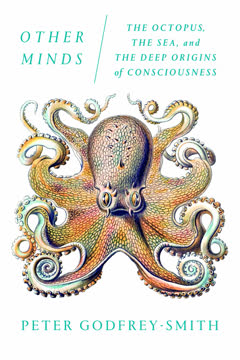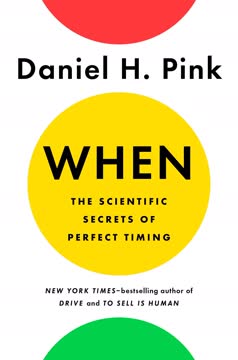Key Takeaways
1. Agriculture revolutionized human society but brought unforeseen consequences
First, it is worth noting that with the Neolithic Revolution, we climbed into the driver's seat.
Agricultural revolution. Around 10,000 years ago, humans transitioned from hunter-gatherer lifestyles to agriculture, marking a profound shift in our relationship with nature. This change allowed for:
- Larger, more permanent settlements
- Food surpluses and population growth
- Development of complex social hierarchies and governments
- Technological advancements
Unintended effects. However, this shift also led to:
- Decreased health and longevity initially
- Increased infectious disease due to proximity to domesticated animals
- Environmental degradation from intensive land use
- Social inequality and conflict over resources
2. Genetic evidence reveals profound changes in human biology since Neolithic era
Pritchard's results don't just point to sections of our chromosomes that have been subject to selection over the past 10,000 years—they also suggest which genes contained within those were the targets of selection.
Rapid genetic adaptation. Genetic studies reveal that humans have undergone significant biological changes in response to agricultural lifestyles:
- Lactase persistence allowing adults to digest milk
- Changes in metabolism to process high-carbohydrate diets
- Adaptations to new infectious diseases
Ongoing evolution. These changes highlight that human evolution didn't stop with agriculture, but accelerated:
- Selection for traits advantageous in agricultural societies
- Potential trade-offs between adaptations and long-term health
- Continued genetic changes in response to modern environments
3. Modern diseases stem from mismatch between biology and post-agricultural lifestyle
Clearly, we are experiencing an epidemic that ultimately has its source in our culture.
"Diseases of civilization." Many modern health issues result from a mismatch between our biology (adapted for hunter-gatherer lifestyles) and contemporary environments:
- Obesity and diabetes from high-calorie, processed diets
- Cardiovascular disease from sedentary lifestyles
- Allergies and autoimmune disorders from altered immune system stimulation
Cultural factors. The prevalence of these diseases is influenced by:
- Industrialized food production and marketing
- Urban design promoting car-centric, sedentary living
- Socioeconomic inequalities in access to healthy foods and lifestyles
4. Mental illness may result from living in densely populated, overstimulating environments
Our lives are now lived in a state that could be called "stream of subconsciousness," as we subliminally lurch from one unrelated (and usually unwanted) stimulus to the next like floating dust particles buffeted by the random forces of air currents.
Overstimulation and stress. Modern urban environments may contribute to mental health issues:
- Constant exposure to noise, visual stimuli, and social interactions
- Chronic stress from work, financial pressures, and information overload
- Disconnection from nature and natural rhythms
Evolutionary mismatch. Our brains evolved for small social groups and natural environments:
- Difficulty processing large numbers of social relationships
- Potential link between creativity and mental illness
- Need for periods of quiet reflection and connection with nature
5. Genetic engineering offers both promise and peril for shaping human evolution
Clearly, we are on the cusp of a revolution in our understanding of our own genetic predispositions, and once we have the information, many people will want to use it, in the same way that other technologies have been embraced.
Potential benefits. Genetic technologies could allow us to:
- Prevent inherited diseases
- Enhance desirable traits (e.g., intelligence, longevity)
- Adapt more quickly to environmental challenges
Ethical concerns. However, these technologies raise complex issues:
- Unintended consequences of genetic modifications
- Exacerbation of social inequalities through "designer babies"
- Loss of genetic diversity and unforeseen traits
- Philosophical questions about human nature and free will
6. Climate change poses an existential threat but also an opportunity for innovation
Tuvalu is truly a country that lives on the edge.
Global challenge. Climate change threatens human civilization through:
- Rising sea levels endangering coastal populations
- Extreme weather events and shifting agricultural zones
- Potential for mass migration and conflict over resources
Catalyst for change. The climate crisis could drive innovation in:
- Renewable energy technologies
- Sustainable urban design and transportation
- Agricultural practices and food systems
- International cooperation and governance
7. Fundamentalism arose as a response to rapid social and technological change
Born of desperation and anger, and driven forward by charismatic leaders, fundamentalist views provide a focus for people who feel left out of the modern world, offering an alternative vision of how life should be lived.
Reaction to modernity. Fundamentalist movements in various religions emerged as a response to:
- Rapid social and technological changes
- Perceived loss of traditional values and certainties
- Feelings of alienation and powerlessness in a globalized world
Appeal and danger. Fundamentalism offers:
- Simple answers to complex problems
- Sense of belonging and purpose
- Potential for violent extremism and social conflict
8. Balancing mythos and logos is key to addressing 21st century challenges
Mythos is about accepting the spiritual aspects of the world, while logos is concerned with questioning and understanding.
Complementary worldviews. Addressing complex global issues requires integrating:
- Mythos: providing meaning, purpose, and ethical frameworks
- Logos: scientific understanding and technological innovation
Holistic approach. Balancing these perspectives can help:
- Guide technological development with ethical considerations
- Address existential threats like climate change
- Foster cross-cultural understanding and cooperation
- Create sustainable and meaningful ways of living in the modern world
Last updated:
Review Summary
Pandora's Seed explores the consequences of humanity's shift from hunter-gatherer to agricultural societies. Wells argues this transition led to numerous unforeseen problems, including obesity, mental illness, and environmental issues. While some readers found the book thought-provoking and well-written, others criticized its lack of focus and overreaching conclusions. Many appreciated the historical and genetic insights but felt the proposed solutions were insufficient. Overall, the book received mixed reviews, with praise for its ambitious scope but criticism for its execution and occasionally weak arguments.
Similar Books










Download PDF
Download EPUB
.epub digital book format is ideal for reading ebooks on phones, tablets, and e-readers.




